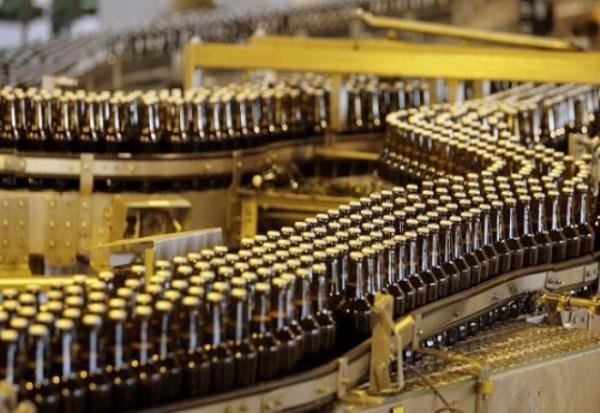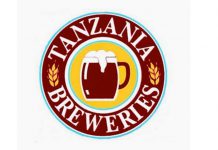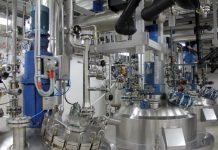AfricaPress-Tanzania: TANZANIA Breweries Limited (TBL) operating profit increased by 5 percent to 220.07bn/- in the year ended 2019 compared to 210.33bn/-in the corresponding period, driven by the cost-saving and decrease in other expenses.
According to Tanzania Securities Limited Commentary on TBL financials 2019 selling and distribution cost decreased by 7 per cent to 118.69bn/- from 128.16bn/-in 2018, the administrative expenses declined 8 per cent to 50.25bn/- compared to 54.70bn/-in the other year.
The report shows further expenses falling by 53 per cent to reach 7.62bn/-from 16.27bn/-in the year 2018.
The profit after tax increased by 13 per cent mainly driven by the increase in finance income by 45 per cent to 2.78bn/-from 1.91bn/-, lower brewing and packaging raw materials prices, efficiencies and lower overhead costs.
Consequently, the Earning per share increased by 13 per cent to 487/-from 428/-.
During the year under review, TBL reported 5 per cent decrease in revenue to 1.02tri/-from 1.07tri/- recorded during the year ended 2018 as the results of the scaling down of Darbrew operations.
The decline in revenue was in tandem with the decline in the gross profit by 3 per cent despite the decrease in the cost of sales by 6 per cent to 628.29bn/-from 669.3bn/-in the year ended 2018.
During the year 2019 the company posted improved performance indicated in the published financial statements; The operation profit increased by 5 percent as the results of increased productivity, lower brewing and packaging material prices, efficiencies in logistics and lower overhead cost.
The Gross and net profit margins both increased to 39 per cent and 15 per cent respectively thank to improved operational efficiency and cost management.
Return on assets (ROA) and return on equity (ROE) also recorded an increase to 19 per cent and 39 per cent respectively compared to prior year.
Despite the Group’s discontinuation operations of traditional beers business, the performance remained sound and stable thanks to management effort ensure that TBL deliver what investors expect and maintain its status as the highest dividend payer.
The improved performance was achieved despite a scale down of Darbrew (manufacturer of Chibuku) operations and a reduction of spirits volume, as TBL capitalised on operational efficiencies and its mainstream beer brands coupled with reductions in operating expenses.
Given these results, TSL said the company’s on-going strategy of delivering more affordable beer brands and packs to encourage consumers to switch out of the informal alcohol market seems to be working, especially considering the current lull in economic activity across sectors due to impact of Covid-19.
TBL will be affected though we are not sure the extent of the impact in the TBL performance in the year 2020. On the other hand the potential to make further dents to the informal alcohol business remains hugely untapped.
The company had announced plans to start a new brewery plant in Dodoma in 2019, but construction is yet to take off.
Still, TBL incurred 64. 17bn/-as capital expenditure during the year, most likely in expansion or improvement of existing production facilities.
This together with the Dodoma plan is a demonstration of the company’s confidence in the business future locally as well as in the region.
At the bourse, TBL is one of the most liquid stocks that dominates the industrial and allied sector with total market capitalisation of 3.3tri/-.
As of 3rd April 2020, TBL’s stock price closed at 10,900/-, a 4 per cent decline from the 11,400/-recorded in 3rd April 2019. However, with these promising results, the price is likely to go up in the near future.
Balance sheet remains size decreased by 3 per cent to total assets of 939.32bn/-from 965.84bn/-. Current assets went up by 1 per cent to 337.07bn/-from 335.34bn/-in the year ended 2018 due to improved net cash flow and inventories increase.
On the equity side the company 1 per cent increased in value of equity to 565.72bn/-from 562.82bn/-in 2018.
A total of 64.17bn/-was invested in capital expenditure during the year compared to 111.96bn/-in the prior year. This resulted into decrease in net cash flow from investing activities by 44 per cent to 61.3bn/-from 109.86bn/-.
Net cash flow from operations increased by 2 per cent to 229.87bn/-from 225.53bn/-a year, 65.28bn/- was utilised to pay corporate income tax.
Financing activities net cash flow declined by 30 per cent to 144.6bn/-from 206.67bn/-, out that 137.75bn/-was utilised to pay dividend during the year 2019. Also, during the year, TBL Plc declared and paid 500/-per share as dividend in 2019.
TANZANIA Breweries Limited (TBL) operating profit increased by 5 per cent to 220.07bn/- in the year ended 2019 compared to 210.33bn/-in the corresponding period, driven by the cost saving and decrease in other expenses.
According to Tanzania Securities Limited Commentary on TBL financials 2019 selling and distribution cost decreased by 7 per cent to 118.69bn/- from 128.16bn/-in 2018, the administrative expenses declined 8 per cent to 50.25bn/- compared to 54.70bn/-in the other year.
The report shows further expenses falling by 53 per cent to reach 7.62bn/-from 16.27bn/-in the year 2018.
The profit after tax increased by 13 per cent mainly driven by the increase in finance income by 45 per cent to 2.78bn/-from 1.91bn/-, lower brewing and packaging raw materials prices, efficiencies and lower overhead costs.
Consequently, the Earning per share increased by 13 per cent to 487/-from 428/-.
During the year under review, TBL reported 5 per cent decrease in revenue to 1.02tri/-from 1.07tri/- recorded during the year ended 2018 as the results of the scaling down of Darbrew operations.
The decline in revenue was in tandem with the decline in the gross profit by 3 per cent despite the decrease in the cost of sales by 6 per cent to 628.29bn/-from 669.3bn/-in the year ended 2018.
During the year 2019 the company posted improved performance indicated in the published financial statements; The operation profit increased by 5 percent as the results of increased productivity, lower brewing and packaging material prices, efficiencies in logistics and lower overhead cost.
The Gross and net profit margins both increased to 39 per cent and 15 per cent respectively thank to improved operational efficiency and cost management.
Return on assets (ROA) and return on equity (ROE) also recorded an increase to 19 per cent and 39 per cent respectively compared to prior year.
Despite the Group’s discontinuation operations of traditional beers business, the performance remained sound and stable thanks to management effort ensure that TBL deliver what investors expect and maintain its status as the highest dividend payer.
The improved performance was achieved despite a scale down of Darbrew (manufacturer of Chibuku) operations and a reduction of spirits volume, as TBL capitalised on operational efficiencies and its mainstream beer brands coupled with reductions in operating expenses.
Given these results, TSL said the company’s on-going strategy of delivering more affordable beer brands and packs to encourage consumers to switch out of the informal alcohol market seems to be working, especially considering the current lull in economic activity across sectors due to impact of Covid-19.
TBL will be affected though we are not sure the extent of the impact in the TBL performance in the year 2020. On the other hand the potential to make further dents to the informal alcohol business remains hugely untapped.
The company had announced plans to start a new brewery plant in Dodoma in 2019, but construction is yet to take off.
Still, TBL incurred 64. 17bn/-as capital expenditure during the year, most likely in expansion or improvement of existing production facilities.
This together with the Dodoma plan is a demonstration of the company’s confidence in the business future locally as well as in the region.
At the bourse, TBL is one of the most liquid stocks that dominates the industrial and allied sector with total market capitalisation of 3.3tri/-.
As of 3rd April 2020, TBL’s stock price closed at 10,900/-, a 4 per cent decline from the 11,400/-recorded in 3rd April 2019. However, with these promising results, the price is likely to go up in the near future.
Balance sheet remains size decreased by 3 per cent to total assets of 939.32bn/-from 965.84bn/-. Current assets went up by 1 per cent to 337.07bn/-from 335.34bn/-in the year ended 2018 due to improved net cash flow and inventories increase.
On the equity side the company 1 per cent increased in value of equity to 565.72bn/-from 562.82bn/-in 2018.
A total of 64.17bn/-was invested in capital expenditure during the year compared to 111.96bn/-in the prior year. This resulted into decrease in net cash flow from investing activities by 44 per cent to 61.3bn/-from 109.86bn/-.
Net cash flow from operations increased by 2 per cent to 229.87bn/-from 225.53bn/-a year, 65.28bn/- was utilised to pay corporate income tax.
Financing activities net cash flow declined by 30 per cent to 144.6bn/-from 206.67bn/-, out that 137.75bn/-was utilised to pay dividend during the year 2019. Also, during the year, TBL Plc declared and paid 500/-per share as dividend in 2019.







